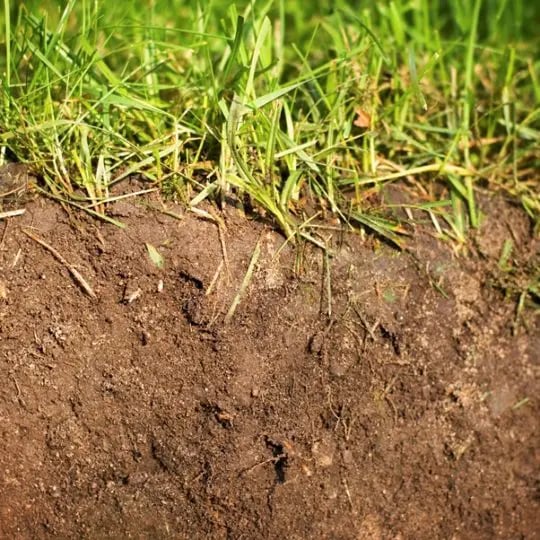Reasons to Test Your Soil’s pH Level

If you are like many lawn owners, you may not even know what a soil pH level is, much less what your soil’s pH level means for your lawn’s health. Find out what your soil’s pH level may mean for your lawn as well as how to test it for yourself below.
What is “pH”?
The pH level of your soil tells you how whether your soil is primarily acidic or primarily basic. The acidity or basicity of the soil determines the chemical forms of soil nutrients and how useful they can be to your plants. pH levels range from 1 to 14, with levels prior to 7 indicating acidic soil and levels past 7 indicating basic soil. Lawns tend to prefer soil that is slightly acidic. A pH level between 5.5 and 7.0 is considered to be within the healthy range. Fortunately, there are ways to “cure” a lawn that has become too acidic or basic, which will be described below.
Acidic Soil
Slightly acidic or “sour” soil can be great for your lawn. Levels of acidity between 5.5 and 7.0 optimize the availability of the soil nutrients your plants need to grow healthy and strong, while plants such as blueberries and azaleas prefer soil with a higher acidity level. However, overly acidic soil can cause a change in the chemical form of aluminum in the soil and keep water and nutrients from reaching the roots of plants, which can cause plants to stop growing. It also minimizes the availability of crucial nutrients for plant growth including calcium, sulfur, phosphorus, and nitrogen.
To increase basicity in overly acidic soil, lime is most commonly applied, though bone meal and wood ash can also be used.
Basic Soil
Basic soil, also referred to as “alkaline” or “sweet” soil, is less sweet than it sounds. Basic soil is clayey soil that filters water poorly, causing plant roots to become waterlogged and eventually killing the entire plant. A solid layer forms beneath the surface of basic soil which is composed of calcium carbonate or lime which plant roots have trouble penetrating due to its basicity.
Increasing acidity in basic soil requires the addition of substances such as organic mulches, compost, or elemental sulfur.
How to Test and Treat
You can buy easy DIY pH testing kits at your local lawn store, or you can have it tested by your local, green lawn professionals who can also do the work of adding acidic or basic fertilizers to balance the lawn, if necessary. For a free pH analysis in the Philadelphia tri-state area, give the pros at Green Lawn a call today! If your soil is overly acidic, take advantage of our Lime Special – $10 off each lime application!